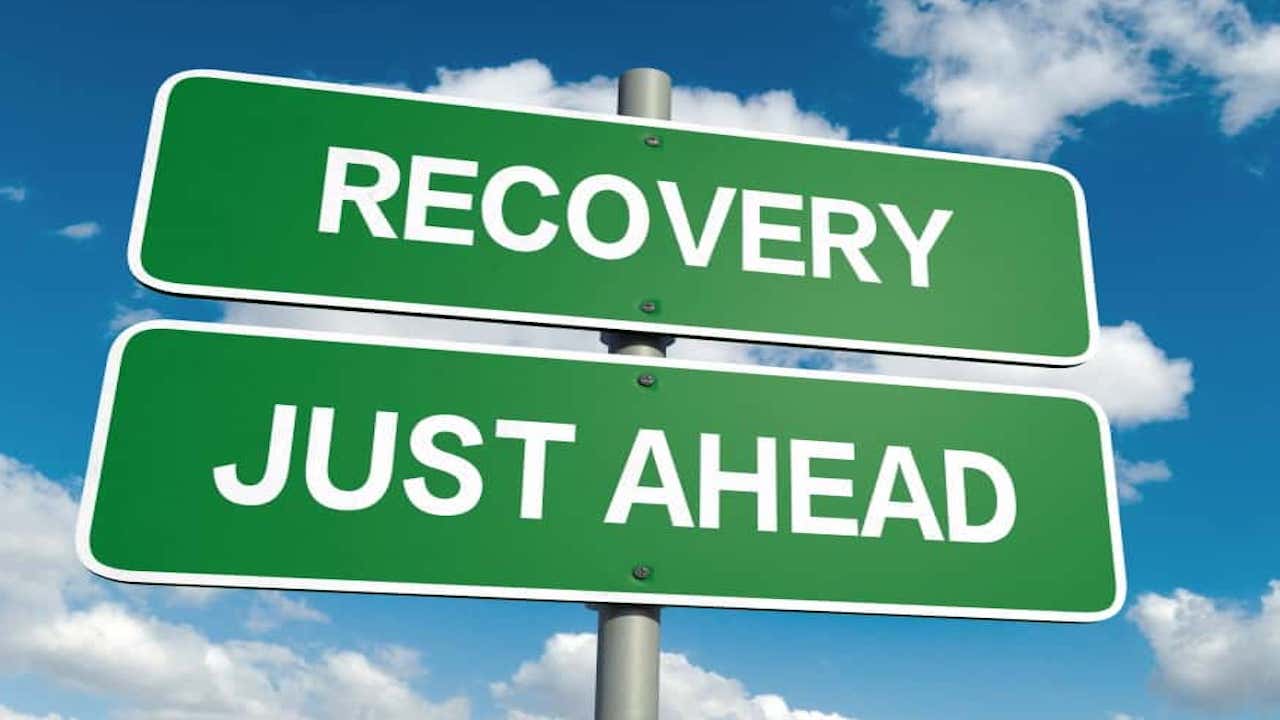[et_pb_section fb_built=”1″ _builder_version=”4.16″ global_colors_info=”{}”][et_pb_row _builder_version=”4.16″ background_size=”initial” background_position=”top_left” background_repeat=”repeat” global_colors_info=”{}”][et_pb_column type=”4_4″ _builder_version=”4.16″ custom_padding=”|||” global_colors_info=”{}” custom_padding__hover=”|||”][et_pb_text _builder_version=”4.19.1″ background_size=”initial” background_position=”top_left” background_repeat=”repeat” global_colors_info=”{}”]
An AlliesinRecovery.net member is concerned her son might relapse at home after responding well to treatment. Not seeing any efforts on his part to go back to a healthy routine, she is getting resentful. She even wonders if she should ask him to move out. We have some CRAFT-informed suggestions for her to try first.
This question originally appeared on our “Pose A Question” member blog:
“My 30-year-old son is home after six weeks of rehab for mental health issues and cocaine use. He came home super motivated and sharing his concerns and feelings but that has slowly deteriorated. COVID had a serious impact on him as he is now back in a restricted interaction with others and has again reverted to staying in bed for long periods of time.
I have really tried to follow your suggestions but communication is really hard with him now and I am becoming resentful as I do not know how to motivate him to return to following his routine he had established in rehab.
He is living at home and has no employment. I am trying to follow natural consequences for no money and have no idea where he is getting his money from. He has no credit cards.
Should I request he move out? Tough during COVID as shelters are very restricted right now. I would really appreciate your insight. Thank you.”
He is out of rehab and shaky
Your son completed a 6-week program just as the COVID shutdown started. He did well in treatment but he’s now home without recovery support and you are witnessing his slide back into a shaky state. It is so incredibly unfortunate to watch our loved ones’ motivation sink as treatments are scaled back and the world of support goes online.
The treatment program should have created an aftercare program that includes online help. If you haven’t done so, please look in our resource supplement (available to AlliesinRecovery.net members) for an up-to-date list of online resources for people with addiction. Members also have the option of calling us and/or meeting with us virtually for assistance via Office Hours and Treatment & Resource Support Calls.
[/et_pb_text][et_pb_button button_url=”http://localhost:10089″ url_new_window=”on” button_text=”LEARN MORE ABOUT ALLIES IN RECOVERY’S VIRTUAL PROGRAM” button_alignment=”center” module_class=”red-button” _builder_version=”4.20.4″ _module_preset=”default” custom_button=”on” button_text_size=”18px” button_text_color=”#FFFFFF” button_bg_color=”#E02B20″ button_border_width=”0px” button_border_radius=”54px” button_font=”|600|||||||” custom_padding=”10px|110px|10px|110px” custom_padding_tablet=”10px|110px|10px|110px” custom_padding_phone=”|80px||80px” custom_padding_last_edited=”on|phone” animation_style=”fold” animation_duration=”1200ms” button_text_size_tablet=”18px” button_text_size_phone=”16px” button_text_size_last_edited=”on|phone” global_colors_info=”{}” button_text_size__hover=”18px” button_text_size__hover_enabled=”on|desktop” button_text_color__hover=”#698b87″ button_text_color__hover_enabled=”on” button_bg_color__hover=”#4f4f4f” button_bg_color__hover_enabled=”on|hover”][/et_pb_button][et_pb_text _builder_version=”4.19.1″ _module_preset=”default” global_colors_info=”{}”]
Try this before you show him the door
You are considering whether to ask your son to leave or to keep him home. Your son participated in treatment. He learned a lot and came home “super motivated.” It is completely understandable that his motivation is disappearing. Unfortunately, you are his one and only support system at the present moment. You are officially case manager for the day as you help him put together a plan. He. Is spending all this time in his head, at home, without any recovery input and this not a winning plan. What you are describing is a disposition of frustration and discomfort. Hiding out in bed is a way to “quiet the disquiet”.
You are his family. You are not professionals. Fortunately, you have found Allies in Recovery and you have access to CRAFT through our eLearning CRAFT Modules and other resources available on our member site. You might be “it” for your son right now but you are not alone, and you are not powerless. CRAFT is proven to work – you might just need to give the program some time. You are typically meant to apply everything you learn over six (6) to eight (8) weeks’ time before you can expect to start seeing big results.
Here are some action items to consider:
- Call the program your son attended and get them to speak with him. Consider asking them if they have other ideas and resources which could help get him back on track.
- Step away some and go neutral.
- Give him room as best you can. It will not be easy.
- Let him sleep and avoid any talk of housework or other things.
- Provide him your strong acknowledgement that he is on the right course, then back away.
- Make a list of treatment providers and resources and prepare for a small but formal talk (the “planned conversation” – see more below). Perhaps his dad and anyone else he respects is at the table when this happens.
The “Planned Conversation” – A CRAFT tool in your kit
In our eLearning CRAFT Module 8, “How Do I Get My Loved One into Treatment?”, we go over the ins and outs of the “planned conversation.” In a planned conversation, you want to make sure you choose a time when your loved one is not using, nor hungry and/or tired. You decide who will be present. And you will have a list of treatment options, resources, and/or recovery activities ready to present. Here’s an example:
“Son, I want to thank you for addressing your addiction. I am proud of you and thrilled by the change in your outlook. I see, though, that you are sinking backwards. That makes sense since we are all cooped up here, and you are not being supported properly. I can’t be your only support. This house cannot be your hiding place. Please consider looking at this list with me and let’s find a couple of online meetings to start. (Perhaps you look together for support groups or online resources that seem like a good fit and are available regularly.). This is a turning point for you. We are with you.”
If he says no, thank him for listening. Set up to try again.
Your situation is happening in one form or another all over this country. Check out this post we wrote to one of our members whose loved one has been struggling, lacking consistent recovery support and follow-up with providers because of COVID.
Communication skills first – at the heart of CRAFT
Every situation is an opportunity to work on your communication. Going back to our eLearning Module 4 on communication is so key – it is the heart of doing CRAFT. We go over negative talk habits, reflective listening, making requests, and positive talk habits – all key for you to learn to do well and as consistently as possible. Being able to talk to him in a way that doesn’t shut him down is going to be your best long-term solution.
As for asking him to leave your home, that remains on the table. It may need to be done but I suggest you first try what I listed above. If this doesn’t help, you will need to figure out where he would go if you asked him to leave. Back to treatment? A sober house? I know these options are currently even harder to locate than usual. You can keep this in the back of your mind and ask us for guidance should he struggle again.
[/et_pb_text][et_pb_button button_url=”http://localhost:10089/choose-your-plan/” url_new_window=”on” button_text=”LEARN COMMUNICATION SKILLS WITH ALLIES IN RECOVERY” button_alignment=”center” module_class=”red-button” _builder_version=”4.20.4″ _module_preset=”default” custom_button=”on” button_text_size=”18px” button_text_color=”#ffffff” button_bg_color=”#E02B20″ button_border_width=”0px” button_border_radius=”54px” button_font=”|600|||||||” custom_padding=”10px|110px|10px|110px” custom_padding_tablet=”10px|110px|10px|110px” custom_padding_phone=”|80px||80px” custom_padding_last_edited=”on|phone” animation_style=”fold” animation_duration=”1200ms” button_text_size_tablet=”18px” button_text_size_phone=”16px” button_text_size_last_edited=”on|phone” global_colors_info=”{}” button_text_size__hover=”18px” button_text_size__hover_enabled=”on|desktop” button_text_color__hover=”#698b87″ button_text_color__hover_enabled=”on” button_bg_color__hover=”#4f4f4f” button_bg_color__hover_enabled=”on|hover”][/et_pb_button][et_pb_text _builder_version=”4.19.1″ _module_preset=”default” global_colors_info=”{}”]
Back to you: compassion and self-care to get you through each day
Your son went to treatment and came back motivated for change in his life. Without consistent professional support, he is shaky in his early recovery. You have probably gone from feeling optimistic and hopeful to feeling down and helpless. You write about starting to feel resentful.
We can relate to what you are feeling just as anyone who has ever loved someone with addiction can. We know how draining it all is. We know it is asking a lot of you. You have been drawing on your resources, trying to help your son help himself.
I suggest you allow yourself to practice these two exercises that will both empower and calm you: compassion and self-care.
Resentment, just like anger, is a very natural response. It is an emotion that can further deplete you of your energy, cloud your judgement and blur your message. Even though it is healthy to welcome the emotion and take it for what it is, it will be a great help to practice turning it around and channeling it through the conscious practice of compassion. Seeing your son’s behavior through the lens of compassion will allow you to reach a better understanding of your son’s internal struggles. It can help you welcome every situation with objectivity and the gentle detachment you need to keep your head above the water.
Easier said than done, you say.
That’s when self-care comes in. Self-care is the amazing dependable friend that holds your hand when everything feels wrong. Self-care is that low-hanging fruit which, ironically enough, can feel incredibly hard to reach when you are so used to caring for your Loved One first. It is different for everyone; it can be little, it can be big, it just needs to feel good.
It is about finding some space to put the focus back on you and on your needs. It is not about being selfish; you need this space to be better equipped to help your son and your entire family navigate early recovery.
What can you do to make this time less tight? How do you bring the focus back on yourselves? How do you find ways, daily, to let in health, peace, and wellness? Search our blog index for some more posts we have written that talk about self-care. I also encourage you to visit our “Sanctuary” (on the member site) which is aimed at providing you some relief, one day at a time.
We commend you for shifting your communication as well as your perspective on your son’s addiction. You are working CRAFT, keep it up, you are moving forward!
[/et_pb_text][et_pb_button button_url=”http://localhost:10089/choose-your-plan” url_new_window=”on” button_text=”CLAIM YOUR MEMBERSHIP TO ALLIES IN RECOVERY” button_alignment=”center” module_class=”red-button” _builder_version=”4.20.4″ _module_preset=”default” custom_button=”on” button_text_size=”18px” button_text_color=”#ffffff” button_bg_color=”#E02B20″ button_border_width=”0px” button_border_radius=”54px” button_font=”|600|||||||” custom_padding=”10px|110px|10px|110px” custom_padding_tablet=”10px|110px|10px|110px” custom_padding_phone=”|80px||80px” custom_padding_last_edited=”on|phone” animation_style=”fold” animation_duration=”1200ms” button_text_size_tablet=”18px” button_text_size_phone=”16px” button_text_size_last_edited=”on|phone” global_colors_info=”{}” button_text_size__hover=”18px” button_text_size__hover_enabled=”on|desktop” button_text_color__hover=”#698b87″ button_text_color__hover_enabled=”on” button_bg_color__hover=”#4f4f4f” button_bg_color__hover_enabled=”on|hover”][/et_pb_button][et_pb_text _builder_version=”4.19.1″ _module_preset=”default” global_colors_info=”{}”]
Join award-winning Allies in Recovery today to access CRAFT-informed blog posts and podcasts – all searchable by topic – AND our eLearning CRAFT Modules (available in video or PDF) that teach you the strategies and skills needed to engage your loved one onto the path to recovery.
Membership at Allies includes direct contact with CRAFT experts via our ZOOM support groups, CRAFT skills and educational groups, treatment and resource support, and virtual office hours. CRAFT is the proven, most successful method for getting your loved one into recovery.
By using CRAFT, you’ll learn information critical to understanding your loved one’s addiction and how to play an important role in their recovery journey. Whether with our self-guided eLearning or live ZOOM groups, you can tailor your participation to what’s best for you.
Additionally, you’ll have guidance on how to identify and manage your own emotions – when you’re faring better, you can better help your loved one.
Read our reviews to see how other families have come to call us a “lifesaver.”
If you’re an Allies member, check out the member site for our “10-day Challenge” to claim your reward of a complimentary One-Day CRAFT Workshop – just for finishing half of the eLearning CRAFT Modules!
Join us TODAY to get trained on reducing the chaos of addiction in your family and your life. You’re not alone – you have Allies.
[/et_pb_text][/et_pb_column][/et_pb_row][/et_pb_section]



